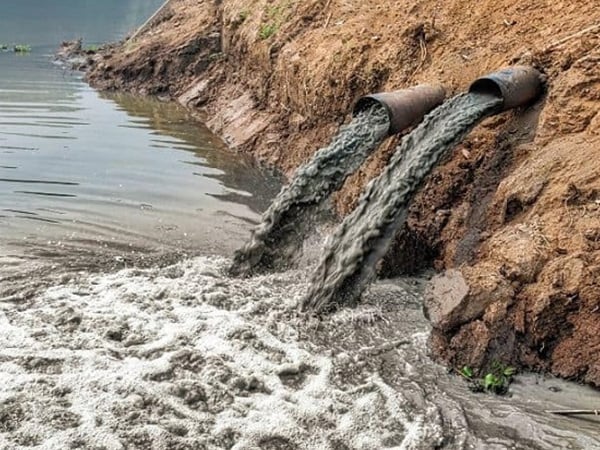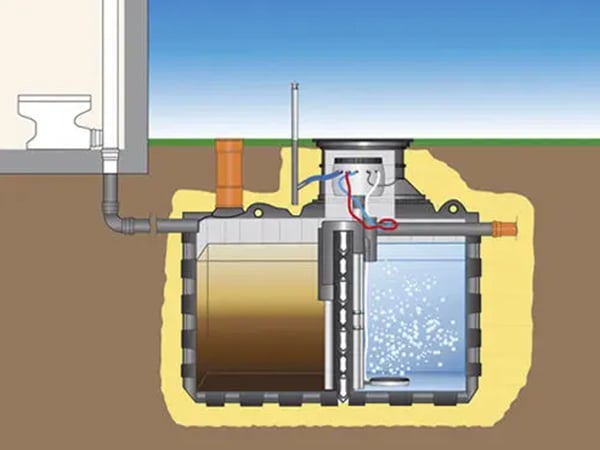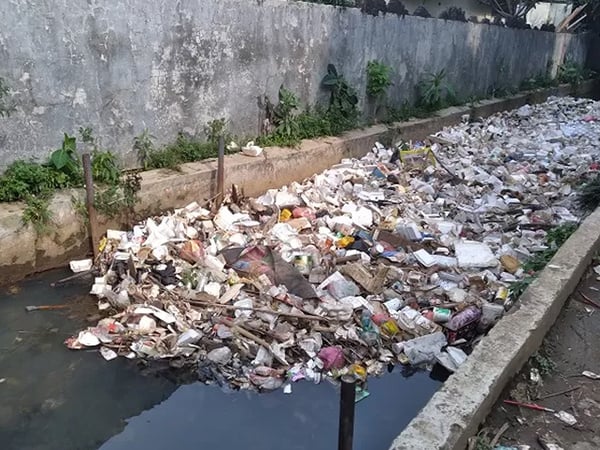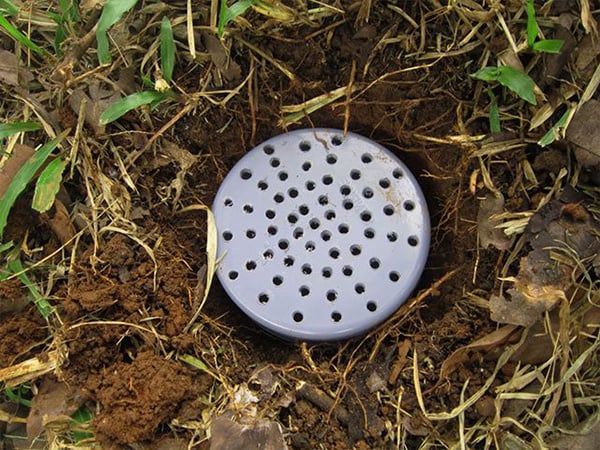In daily life, activities such as washing, cooking, and bathing generate domestic wastewater. The importance of managing this wastewater cannot be underestimated as it has a direct impact on public health and environmental sustainability. Effective management processes help reduce pollution, maintain water quality, and ensure ecosystem health. We must understand, appreciate and implement a good domestic wastewater management system for a better future. Domestic wastewater management is not only the responsibility of the government, but also of the entire community. Every individual has a role to play in ensuring efficient waste management practices, from wise water use at home to participation in community organized recycling and waste management programs.

Definition and Importance of Domestic Water Waste Management
Domestic wastewater, which is generated from household activities, contains impurities to germs. This component can come from various sources such as the kitchen, bathroom, and laundry, which includes food scraps, detergents, soaps, and other organic waste. Without proper management, the risk of environmental pollution and the spread of disease increases significantly.
Effective management not only protects clean water sources from contamination but also supports public health by reducing the potential spread of dangerous diseases such as cholera and diarrhea. This makes domestic wastewater management an important pillar in sustainable development. In addition, by treating domestic wastewater before it is discharged into the environment, we also contribute to the preservation of freshwater and marine ecosystems, maintain healthy biodiversity and support aquatic life.
These management efforts support the achievement of the Sustainable Development Goals (SDGs) set by the United Nations, specifically related to clean water and sanitation for all. Therefore, the development and implementation of efficient and effective sewage treatment technologies is crucial. This requires not only support from the government, but also active participation from communities and the private sector to ensure success in domestic wastewater management, for the realization of healthy communities and a sustainable environment.
 Figure>.
Figure>.
Domestic Waste Water Management Methods
A variety of domestic wastewater management methods, such as septic tanks, WWTPs, and artificial wetlands, offer adaptive solutions to the challenges of waste management. Each method has its advantages and applications, enabling efficiency in sewage treatment according to the specific needs of the community or region.
- Septic tanks, which are widely used in residential areas, work on the principles of sedimentation and anaerobic decomposition. These systems are effective at reducing solid waste, but require ample space for installation and often require regular maintenance.
- IPAL, on the other hand, is designed to treat larger volumes of waste with a variety of physical, chemical, and biological processes. WWTPs can be very effective in reducing pollutants and nutrients, making them suitable for large communities or densely populated settlements. However, the initial investment and operational costs can be high.
- Artificial Wetlands are solutions that mimic the function of natural ecosystems to filter and clean wastewater. These systems are not only effective in treating wastewater but also enhance biodiversity and landscape beauty. Artificial wetlands require large areas of land and careful management to ensure their long-term effectiveness.
In addition to these traditional methods, new technologies such as biofilter systems and filtration membranes have been developed to improve the efficiency of domestic wastewater treatment. These technologies offer a more compact and efficient solution, suitable for areas with limited land or resources.
The choice of the best domestic wastewater treatment method depends on various factors, including the volume of effluent generated, local geographical and environmental conditions, as well as resource and budget availability. By taking these aspects into consideration, each community or region can implement the most suitable, effective, and sustainable domestic wastewater management system.

Benefits of Effective Waste Water Management
Significant benefits of effective wastewater management include pollution prevention, protection of public health, conservation of water resources, and protection of aquatic life. This shows how important an effective wastewater management system is for the common welfare. Through careful treatment processes, wastewater can be transformed into a valuable resource, reducing pressure on natural clean water sources and enabling the reuse of water for irrigation, industrial, and even domestic purposes after adequate filtration and purification processes.
In addition, reducing greenhouse gas emissions is another important benefit of effective wastewater management. Modern treatment processes can reduce the amount of methane, a potent greenhouse gas, produced from the decay of organic waste. Thus, wastewater management is not only beneficial to the local environment but also contributes to global efforts in dealing with climate change.
Efficient management also helps in job creation and community empowerment through training and skill development in the management and maintenance of sewage treatment facilities. This creates a sustainable ecosystem where the community is not only the beneficiary but also an active participant in keeping their environment clean and healthy.
Thus, a holistic approach in wastewater management opens up new opportunities for innovation, sustainable development, and improved quality of life, making it a worthwhile investment for a greener and healthier future.
 Figure>.
Figure>.
Challenges in Domestic Waste Water Management in Indonesia
Indonesia faces challenges such as inadequate infrastructure and public awareness that still needs to be improved in domestic wastewater management. This requires a comprehensive strategy involving the government, private sector, and communities to effectively address these issues. Wide geographical variability and uneven population distribution add complexity to the provision and maintenance of efficient waste management infrastructure across the archipelago.
Moreover, regulations that are inadequate and still need to be improved in domestic water effluent management are not in place.
In addition, poorly harmonized regulations and inconsistent policy implementation across different levels of government often hamper effective wastewater management efforts. Insufficient funding and lack of investment in innovative and sustainable sewage treatment technologies are also major impediments to the improvement of Indonesia's wastewater management system.
Lack of education and understanding of the effluent management system in Indonesia.
Lack of public education and understanding of the importance of responsible wastewater management contributes to environmentally detrimental behaviors, such as direct discharge of garbage and domestic waste into water bodies. This calls for more extensive and sustained awareness and education campaigns to change the public's mindset and behavior towards waste and its management.
Overcoming these challenges requires a broad-based approach.
Overcoming these challenges requires a multidisciplinary approach and strong inter-sectoral cooperation, including increased investment in research and development of adaptive and environmentally friendly wastewater management solutions. With close cooperation between government, industry, educational institutions and communities, Indonesia can achieve effective and sustainable domestic wastewater management, supporting public health and environmental preservation for current and future generations.

Case Study: Domestic Waste Water Management Best Practices
Singapore offers a leading example in wastewater management with advanced technologies such as NEWater, which converts sewage into clean water. This practice demonstrates the potential of transforming domestic wastewater management systems with innovation and commitment. Similar to Singapore, Indonesia has also embarked on several important initiatives to address domestic wastewater management challenges using innovative and sustainable approaches.
One prominent case study from Indonesia is the wastewater management project in the city of Bandung, West Java. The city of Bandung, facing significant water pollution issues due to domestic sewage, implemented a biopore system and waste bank to improve water and waste management. Biopore pits, which are dug to absorb rainwater and reduce waterlogging, also serve to process organic waste into compost, demonstrating how simple techniques can provide multiple benefits for effective water and waste management.
Another project that received recognition was the Bandung city water and waste management project.
Another project that received recognition was the development of a sustainable waste management system on Pramuka Island, part of the Thousand Islands, which faces unique challenges related to waste management due to limited space and resources. The system integrates wastewater treatment with environmentally friendly technologies, including the use of artificial wetlands and a communal wastewater treatment plant designed to minimize environmental impacts and support water conservation.
Both of these case studies demonstrate the importance of sustainable waste management.
These two case studies demonstrate Indonesia's commitment to sustainable and innovative domestic wastewater management, despite the challenges it still faces. Through the adoption of efficient technologies and integrated approaches, both at the municipal and small community scale, Indonesia continues to improve water quality and environmental health for its population.
Conclusions and Way Forward
Domestic wastewater management is key to a sustainable future. With the right technology, increased awareness, and cooperation between sectors, Indonesia can overcome this challenge and ensure a healthier and more sustainable environment for generations to come. Investment in waste management infrastructure and adoption of clean technologies are critical to achieving this goal.
In the midst of these challenges, Beta Pramesti Asia stands as your trusted partner in water and wastewater treatment. With years of experience and the application of leading-edge technologies, we are committed to providing solutions that are not only effective but also environmentally friendly. We invite you to join us on the journey towards a more sustainable future.
Let's take steps together to ensure that wastewater management in Indonesia not only meets today's standards but also contributes to the legacy we leave behind for generations to come. Contact Beta Pramesti Asia today via Whatsapp or e-mail to start your journey towards better and greener water and waste management.
We are ready to be part of the solution.
We are ready to be part of your solution in creating a healthier and more sustainable environment. Together with Beta Pramesti Asia, let us realize the vision of efficient, innovative, and sustainable water and waste management.
